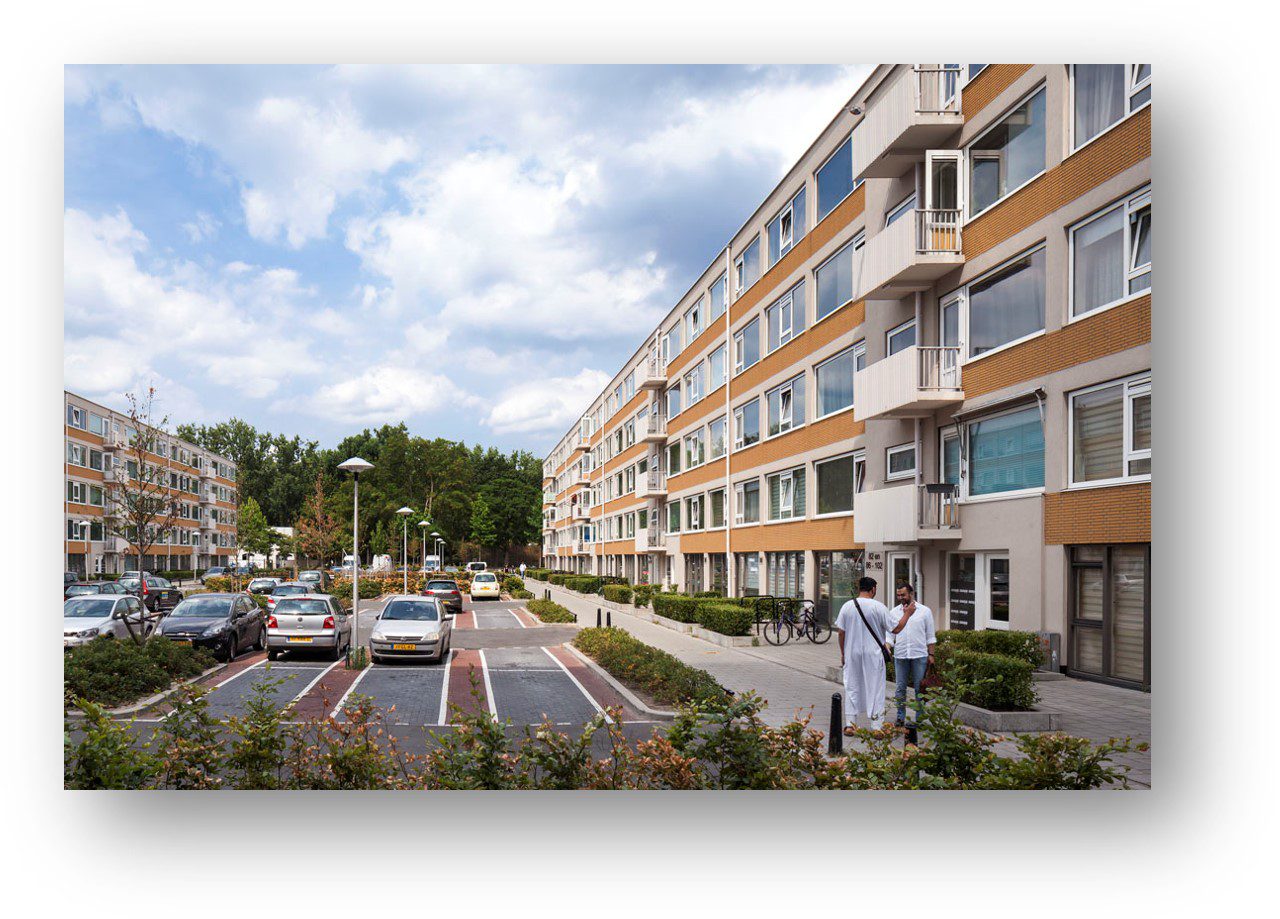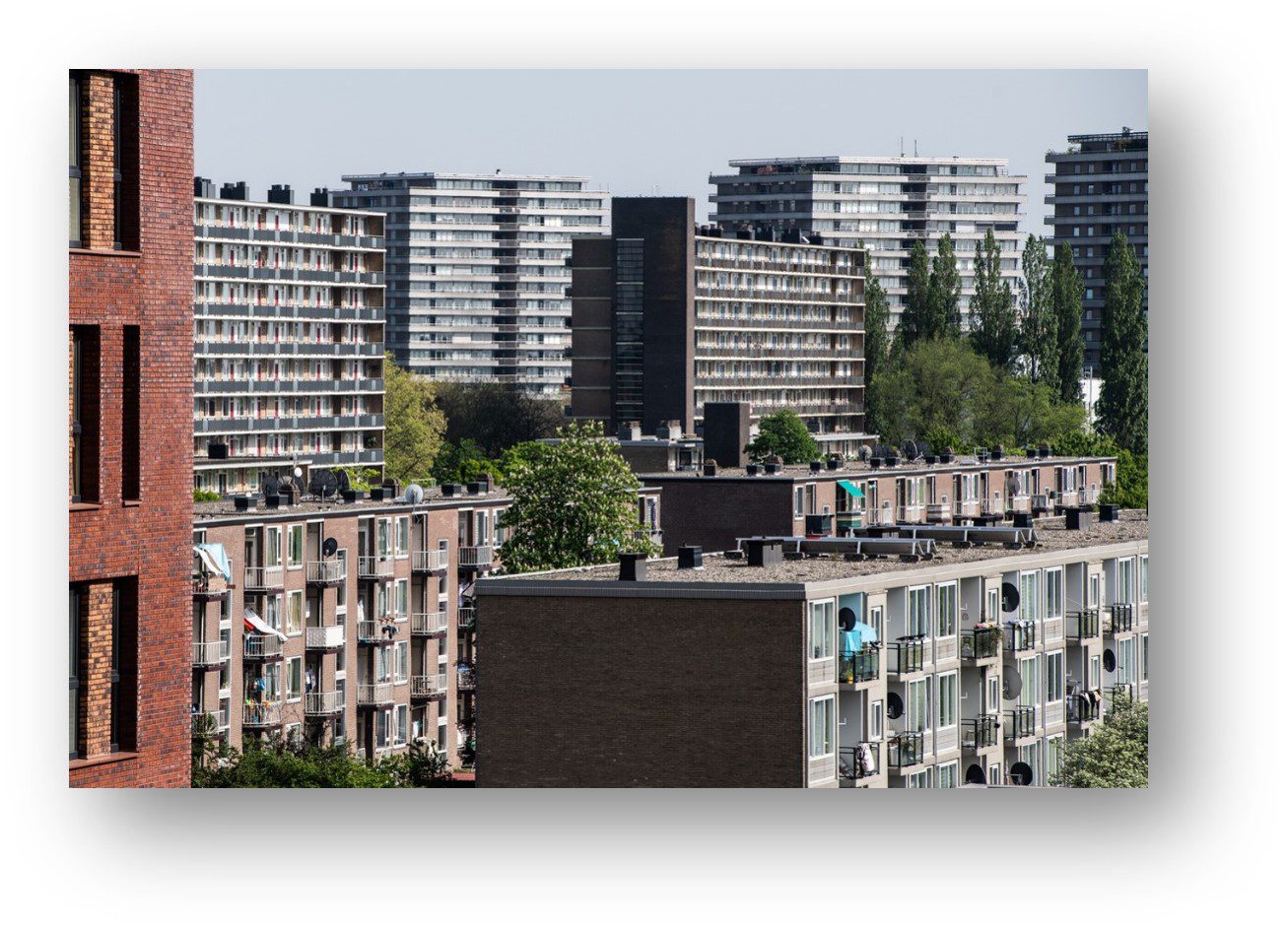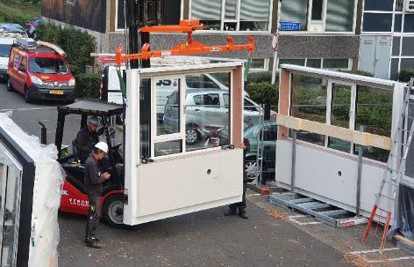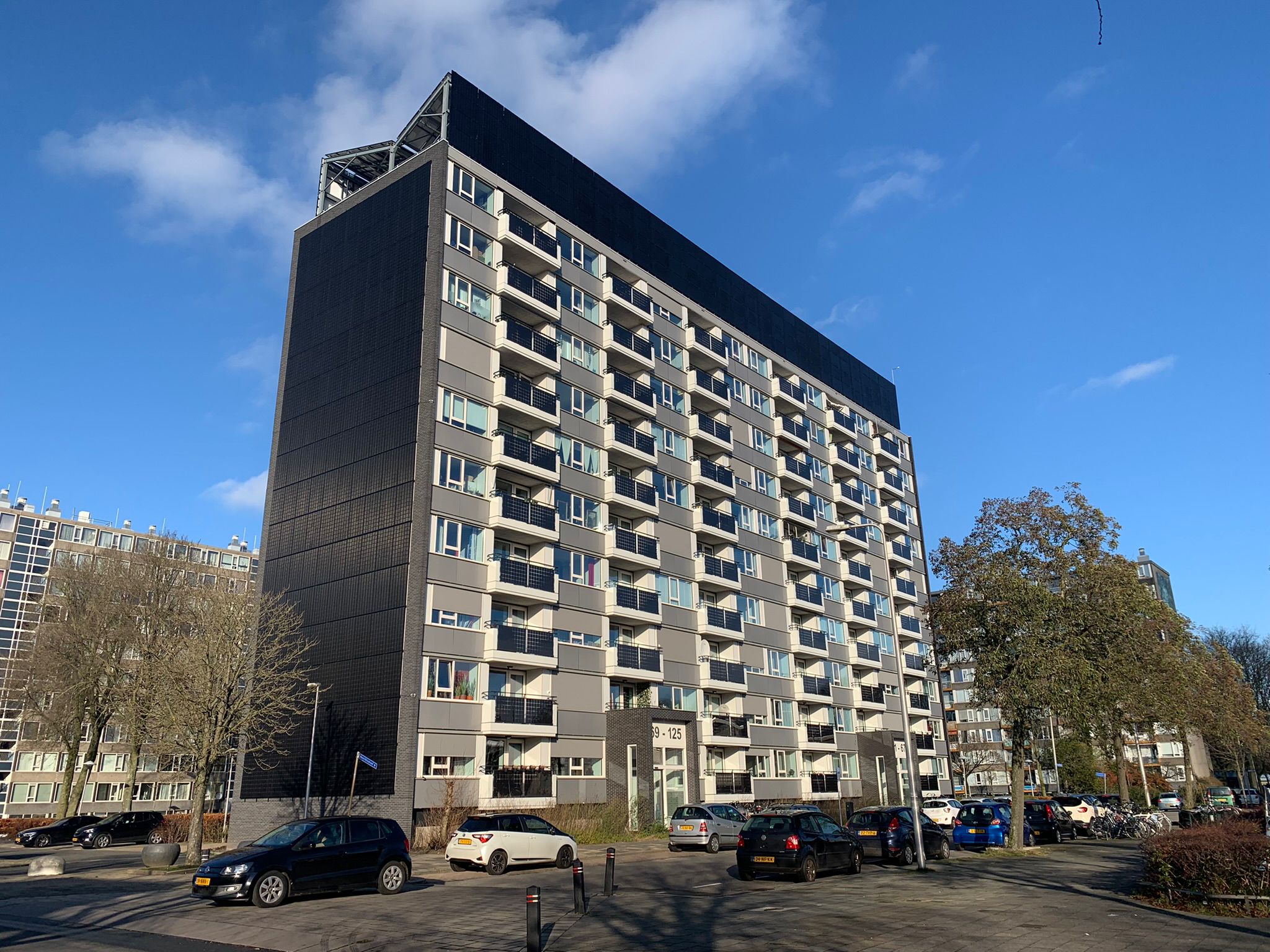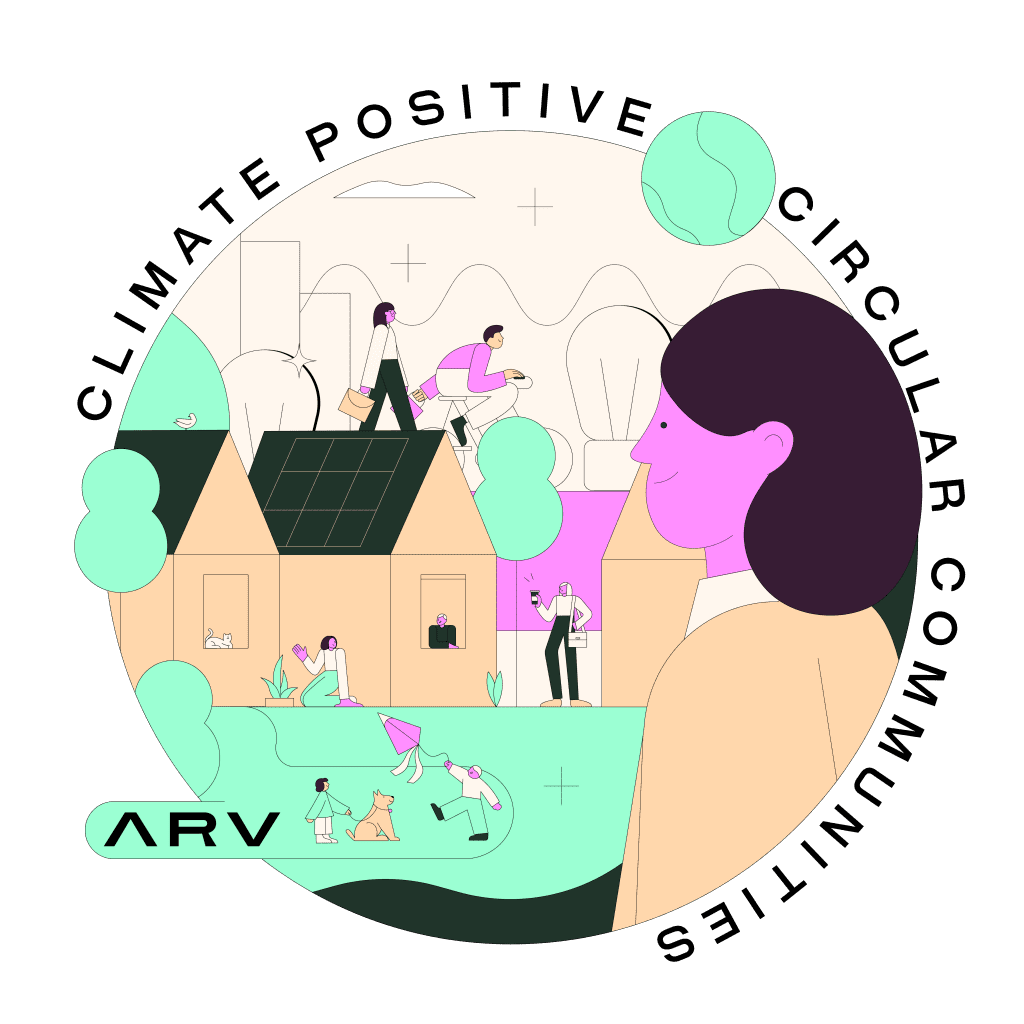Both districts were built in the 1960s and 1970s to account for the quick rise in urban population and are in general of low-quality. Both districts share the characteristics of lively multi-cultural districts, with a high share of social housing, schools and shops. The residential areas are densely populated districts, home to a majority of low-income households. Both districts have a triple energy infrastructure: a district heating network, gas infrastructure for home-boilers and an electricity grid.
The demonstration actions that will be undertaken by the ARV project are the resource efficient, systematic retrofitting of 8 residential apartment buildings from the 1960s into Positive Energy Buildings embedded in a green neighbourhood, with a global area of 63 600 m².
Innovation cluster
Stichting Bo-Ex, Woonin (developers), Utrecht University, Stichting Hogeschool Utrecht, iWell, Rc Panels, Buro De Haan, Bos Installatiewerken Bv, Utrecht Municipality
Key data
- Renovation of 8 apartment buildings
- Plot area:
- Floor area: 63 600 m²
- Construction year: 1960-1970s
- Industrial prefabricated modular component integrating construction, energy and climate installations
- Facades flat: integrates heat recovery for LT heating and ventilation, DC-ready cabling and (BA/BI), PVpanels, insulation, air-tightness.
- Facades end-façade: mounting PV, configuration/standardisation, insulation, air-tightness, other add-ons.
- Roof system: Heat Pump, insulation, air-tightness, warm water, PV, integrated piping and ducts.
- Design and implement Inside Out 2.0
- Deep insulation, decentralised HVAC, aluminium window frames and triple glazing, screens to prevent overheating in summer, on-site assemblage to minimise time and nuisance
- Smart building control optimization
- Monitoring of performance, energy usage, comfort levels
- Social renovation
- Before the actual renovation the housing corporation will engage with tenants to explore social challenges and opportunities of the tenants, and support tenants in dealing with these social topics.
- The key innovation of ARV includes also the post-renovation coaching to improve tenant’s long-term resilience for social challenges and opportunities.

